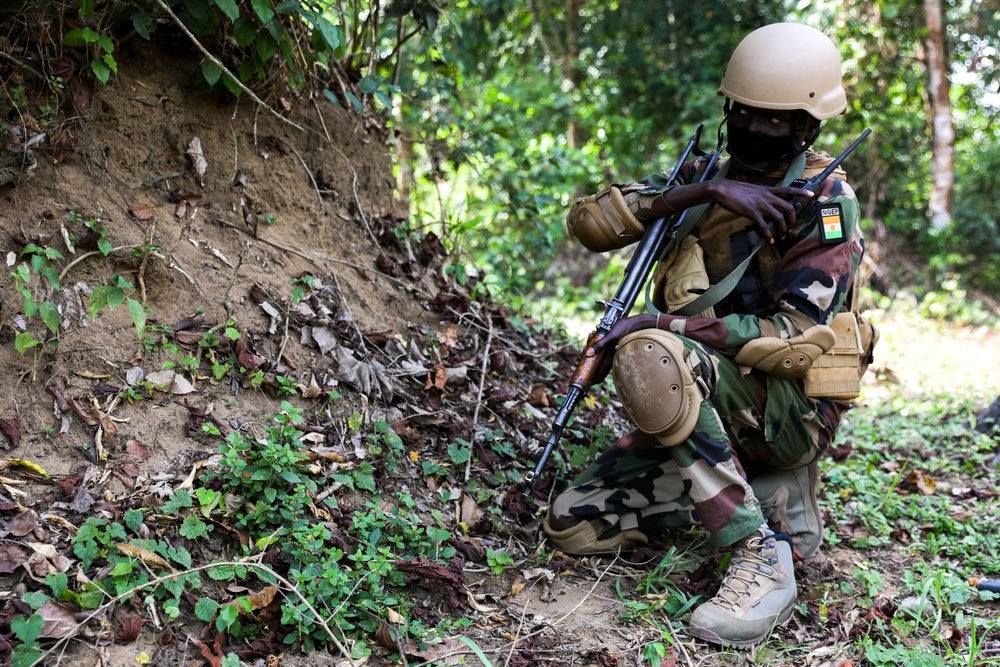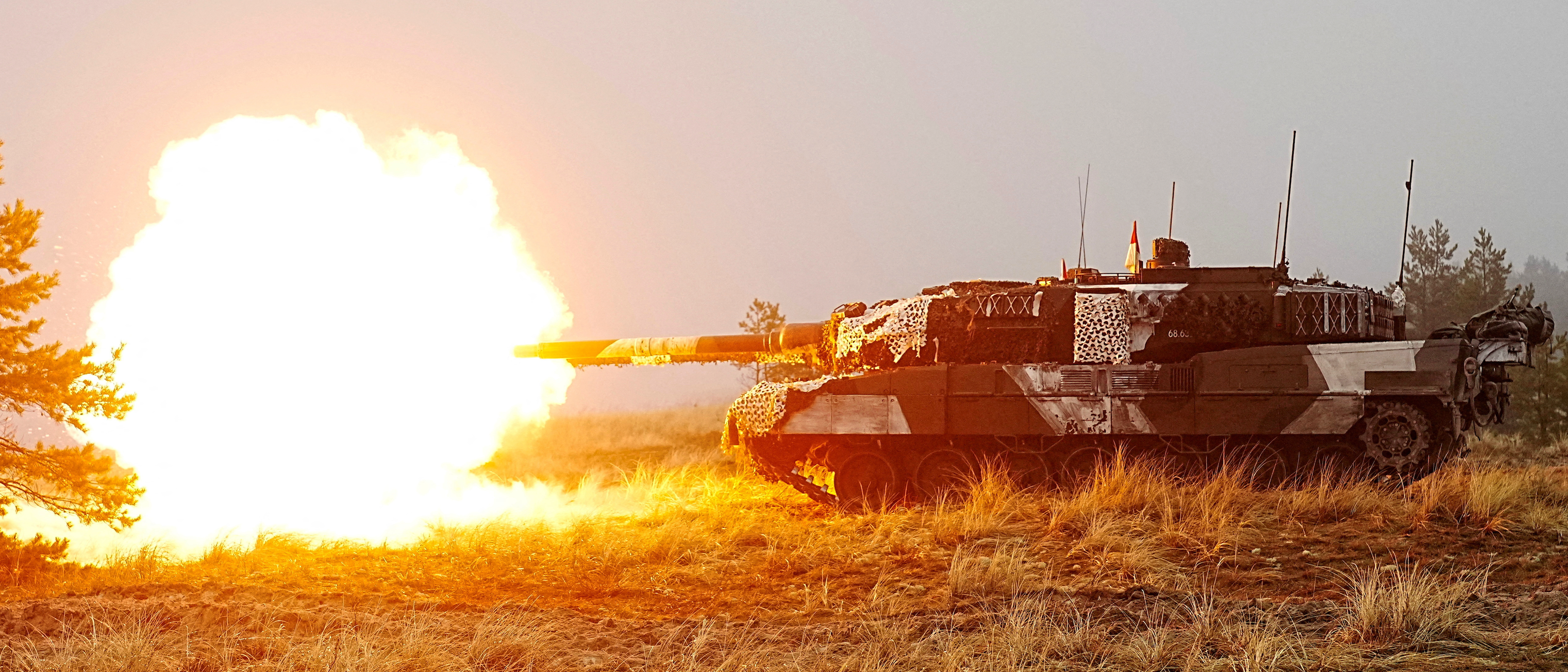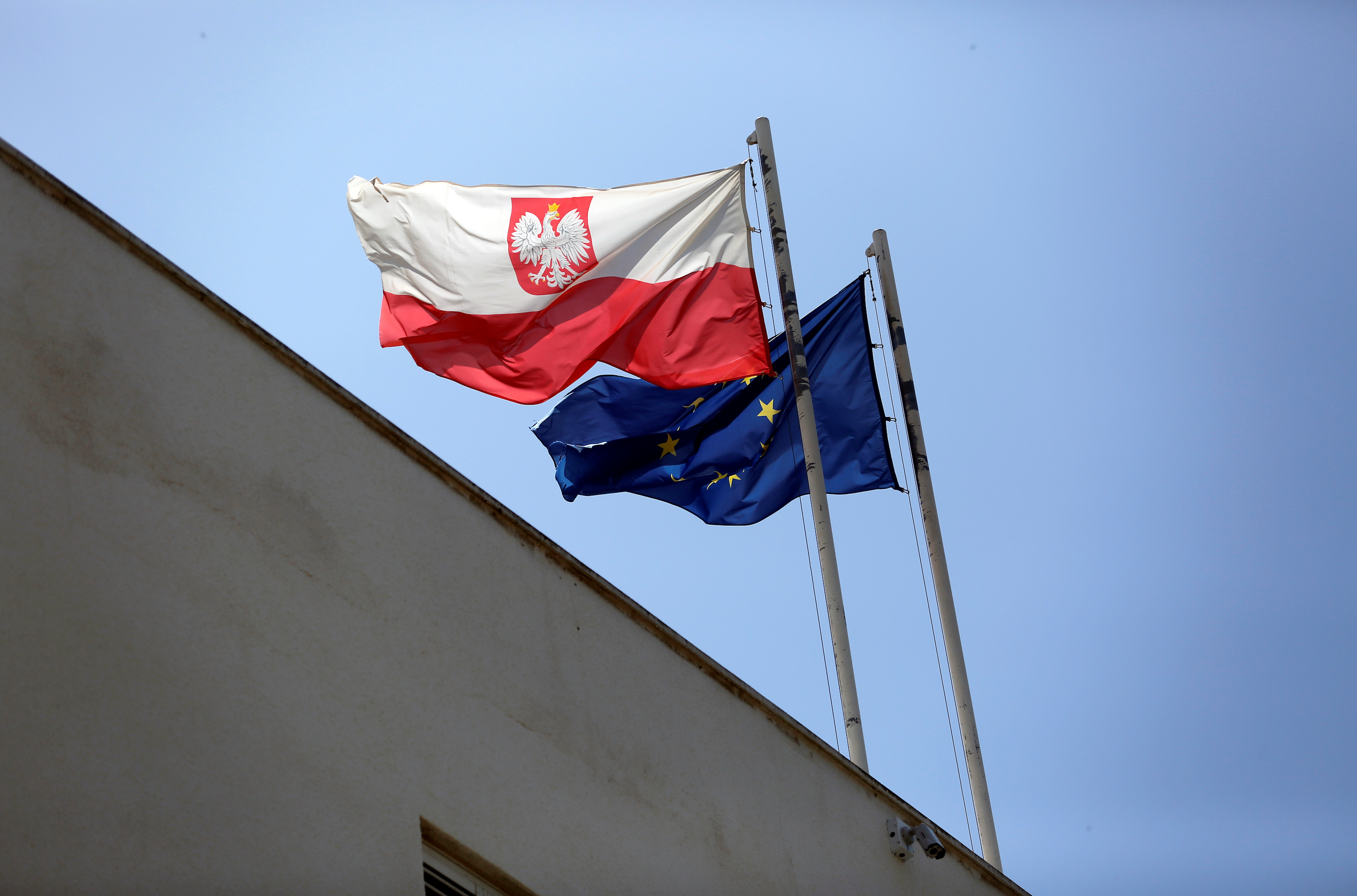
Putin discusses security cooperation with West and Central African leaders
PHOTO CAPTION: A Nigerien Special Forces Soldier communicates on a radio while conducting a raid during Flintlock 2022, in Côte d'Ivoire, Feb. 26, 2022. (U.S. Army photo by Sgt. Kacie Benak via U.S. Defense Visual Information Distribution Service)
BAMAKO (Reuters) - Russian President Vladimir Putin discussed security and economic cooperation with Mali's junta leader Assimi Goita by phone on Wednesday, both countries said, a day after Putin held a similar call with the junta leader in neighbouring Niger.
"We discussed bilateral issues, particularly the security and economic areas," Goita wrote on X. "We agreed to cooperate further in the fight against terrorism." The Kremlin confirmed the call and said the two leaders agreed to forge closer ties.
Mali has in recent years become one of Russia's closest African allies, with the Wagner Group mercenary force deploying there to fight jihadist insurgencies rebels in the Sahel country.
Russia is seeking to strengthen relations with African countries, pitching Moscow as a friendly country without a colonial background in Africa.
The call appeared to be part of a round of diplomatic exchanges Putin has made with West and Central African leaders since his re-election earlier this month.
The Kremlin said on Wednesday Putin and the leader of the Republic of Congo, Denis Sassou Nguesso, had agreed in a phone call to deepen political, economic and humanitarian ties.
On Tuesday, Putin spoke by phone with Niger's junta leader, Abdourahamane Tiani and discussed a need to reinforce their security cooperation, according to Nigerien state television.
The call followed a decision on March 17 by Niger, former Western ally in the fight against militant insurgencies in the Sahel region, to revoke its military accord with the United States.
U.S. officials had warned Niger junta leaders about their ties with Russia and Iran, days before the junta revoked the military agreement.
Niger junta's decision followed that of neighbouring Mali and Burkina Faso who have also severed military ties with longstanding allies including France while turning to Russia for support.
The three have also decided to quit the 15-member West African regional bloc and formed a cooperation pact known as the Alliance of Sahel States (AES).
The Sahel states, which are fighting Islamist insurgencies, agreed earlier this month to set up a joint force to tackle security threats across their territories.
(Reporting by Balima Boureima and Tiemoko Diallo; Writing Portia Crowe; Editing by Bate Felix and Ros Russell)









